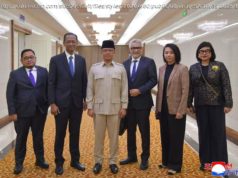Expect robust debate on economics, climate change and trade, with the shadow of North Korea’s missile tests hanging over the gathering
First held in 2008, the Group of Twenty summit, better known as the G20, is one of the most important global forums for international economic cooperation and coordination.
It brings together 19 countries as well as the European Union, and its members account for over 80 per cent of the world’s gross domestic product and host almost two-thirds of the world’s population.
The two-day summit, to be held in the city of Hamburg, marks the climax of a year of G20 gatherings hosted by Germany.
German Chancellor Angela Merkel’s government has set “Shaping an Interconnected World” as the theme of this year’s summit. That encompasses three aims – strengthening economic resilience, improving sustainability and assuming responsibilities.
Who is at the helm?
With Germany the host, Merkel will be centre stage. Unlike the first G20 in 2008, when the US was the undisputed leader even while embroiled in wars in Iraq and Afghanistan, the geopolitical landscape is different. Merkel is expected to show her toughness, especially towards US President Donald Trump, whom she has sharply and publicly criticised over his policies, especially his decision to pull out of the Paris climate accord, as well as his zero-sum approach to world trade.
China, which was eager to show off its global leadership credentials when hosting last year’s summit, is expected to continue its efforts to highlight its role as an active supporter of free trade and international investment, as well as to seek to revive discussion over inclusive growth as concerns grow over the negative effects of globalisation.
What is on the agenda?
The main topics will be economic and financial policy, climate, trade, employment and development. Migration and refugee flows are other key issues of global significance. It is also widely believed that counterterrorism will be high on agenda in the wake of the recent deadly attacks in the UK and France.
Merkel, a strong supporter of free trade, has pledged to defend an open global market against Trump’s isolationist “America First” agenda.
This will not be easy, but there are no signs that the chancellor will back off – in her speech to parliament last week, without mentioning Trump’s name, Merkel said global problems could not be solved with protectionism and isolation.
IMF warns G20 about ‘myopic’ nationalist trade policies in apparent dig at Trump
Another difficult topic will be about climate change, which is likely to trigger confrontations between Trump and other leaders, including his western allies. The US president has previously called global warming a hoax.
The Hamburg summit will be the first multilateral international meeting since Trump pulled the US out of the Paris climate agreement in June, a decision that drew strong criticism from Western leaders.
Merkel has said that European leaders should put on a united front against Trump over climate change.
North Korea
Tensions with North Korea are set to overshadow the summit. Fears have been growing that the North may conduct another nuclear or missile test during the summit, following on from the successful launch this week of a missile it claimed could carry a nuclear warhead to the US mainland.
China, South Korea likely to hold talks at G20 amid strained ties over missile shield, says diplomat
The US ambassador to the United Nations, Nikki Haley, has warned that the US would use military force to stop North Korea from developing the capability to strike another country with nuclear weapons if diplomatic solutions failed.
She also said that the US could cut off trade with countries that continued to trade with the reclusive nation. China is the largest trade partner of its Communist neighbour.
Chinese President Xi Jinping, who hosted last year’s summit, is expected to face tremendous pressure amid international frustration over Beijing’s reluctance to tighten the screws on its neighbour, though it remains unlikely that China and the US will find any solution to break the deadlock over the issue.
Trump v Putin
The news that Trump will meet his Russian counterpart Vladimir Putin on the sidelines of the summit has dominated headlines since it was announced a week ago.
This will be the first face-to-face meeting since Trump’s election, and will come amid a wide range of disputes between the two countries, from the war in Syria to the conflict in Ukraine.
The meeting will also have a political dimension in the US too, as Trump is facing investigations into his election campaign’s possible links with Russia, as well as questions over possible Russian interference in the 2016 election.
Both the White House and the Kremlin have been tight-lipped about what the two presidents will talk about in Germany.
During his election campaign, Trump publicly praised Putin, while the Russian president has also described the US leader as “colourful and talented”.
Trump v Xi Jinping
Trump and Chinese President Xi Jinping will have their second face-to-face meeting on the sidelines of the summit.
Even though Trump vowed on the presidential campaign trail to label China as a currency manipulator, relations between China and the US over the past few months have been smoother than expected. Xi and Trump had their first summit at the US president’s Mar-a-Lago resort in Florida in April. Both nations agreed on a 100-day action plan to tackle trade imbalances and to work to rein in North Korea.
But tensions between the two nations have risen since, with Washington repeatedly expressing frustration over Beijing’s lack of action against Pyongyang. The US has vowed to sanction Chinese companies doing business with Pyongyang and the US Senate has approved arms sales to Taiwan, triggering a furious response from Beijing.






